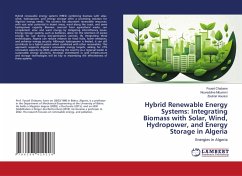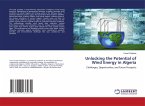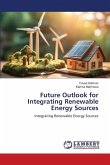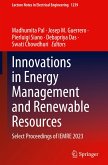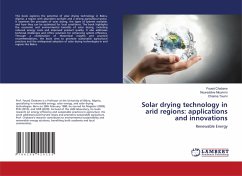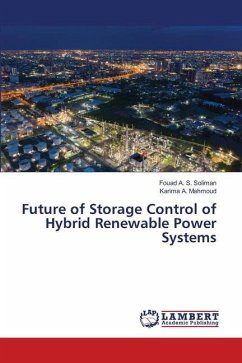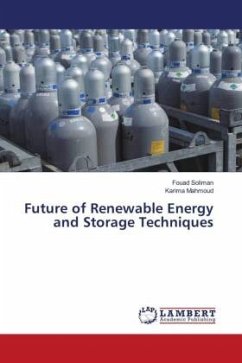Hybrid renewable energy systems (HRES) combining biomass with solar, wind, hydropower, and energy storage offer a promising solution for Algeria's energy needs. The country has abundant renewable resources, with vast solar potential in desert areas, wind along the coast, and some hydropower capacity. Biomass, sourced from agricultural waste, can complement solar and wind energy by mitigating intermittency issues. Energy storage systems, such as batteries, allow for the retention of excess energy for use during low-generation periods. By integrating these technologies, Algeria can reduce reliance on fossil fuels, lower emissions, and enhance energy security. Although hydropower is limited, it can still contribute to a hybrid system when combined with other renewables. This approach supports Algeria's renewable energy targets, aiming for 27% renewable capacity by 2030, positioning the country as a regional leader in sustainable energy solutions. Strategic investments in grid infrastructure and storage technologies will be key to maximizing the effectiveness of these systems.
Bitte wählen Sie Ihr Anliegen aus.
Rechnungen
Retourenschein anfordern
Bestellstatus
Storno

